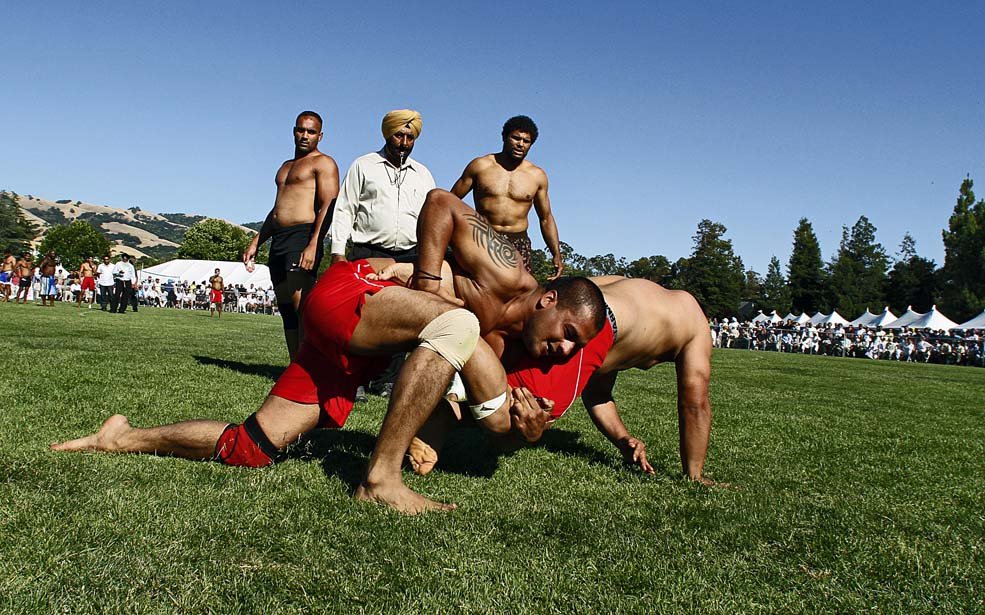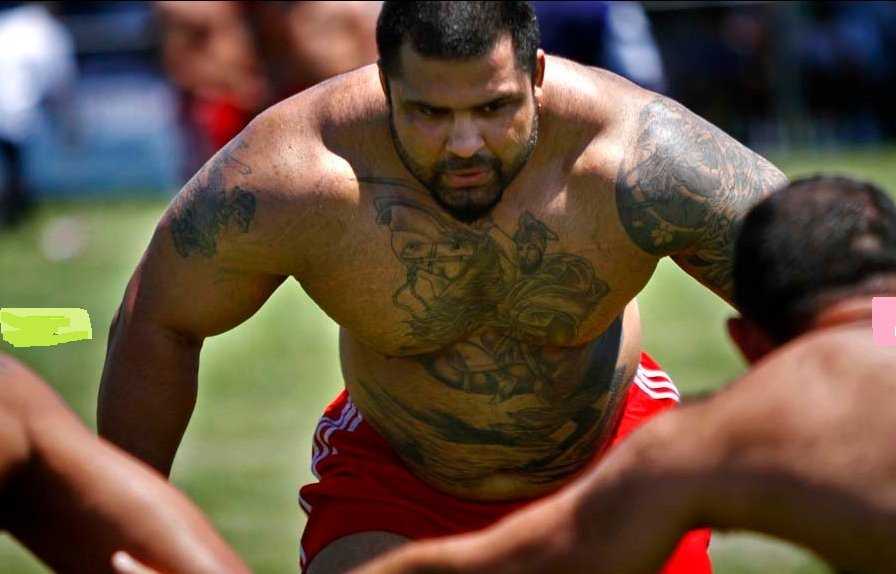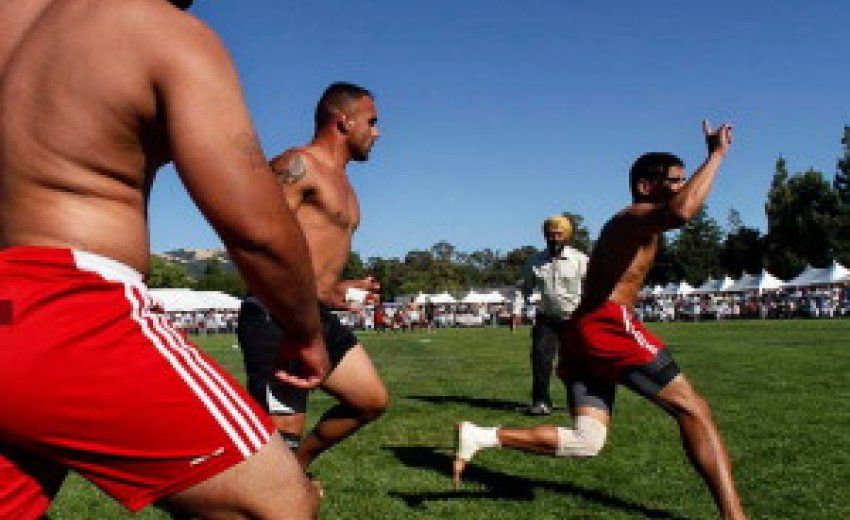 |
| A defender pins down a raider trying to escape during a Kabaddi tournament in San Jose in 2012. Kabaddi is a sport from the Punjabi region that encompasses Pakistan and northern India. PHOTOGRAPH BY: IRFAN KHAN / LOS ANGELES TIMES |
February 20, 2014: The announcer, speaking Punjabi, called the play with feverish excitement.
The rough translation: “The fleet one with thunderous thighs and briefs the red of a rare butterfly scores!”
A crowd of hundreds, mostly Sikh men wearing turbans in riotous colors, cheered on the action.
Kabaddi — a sport without a ball or protective gear or any rule against holding your opponent upside down and moving him in the manner of a salt shaker — is popular across the Central Valley and San Francisco Bay Area, home to a large Punjabi population.
 |
| A heavily tattooed Kabaddi player raids an opposing team during a tournament in Union City. PHOTOGRAPH BY: IRFAN KHAN / LOS ANGELES TIMES |
Two eight-member teams, made of four raiders and four stoppers, stand inside a circle. One of the raiders tries to run across and tag a member of the other team and get back without being tackled. The following melee is part Red Rover and part Lucha Libre.
That the athletes are invariably well-muscled, well-oiled and wearing only brief trunks, has younger, promotion-minded members of the community envisioning Kabaddi as the next pro beach volleyball.
Already, there are world-wide professional tournaments. It’s been promoted as an Olympic sport.
Others see the sport, from a region that encompasses Pakistan and northern India, as a private touchstone in a community that has tended to be insular. They oppose glitzy promotion, but feel the sport may help them share their culture with others.
“Kabaddi is a way for our community to reach out and say, ‘This is who we are,’ and make new friends. It is not good for us to stay keeping to ourselves. Because of our turbans, Sikhs are often victims of violence,” said Balbir Singh, editor of a California Punjabi newspaper, while attending a Central Valley game in June 2012.
Two months later a gunman killed six worshipers at a Sikh temple in Wisconsin as they prepared for a Sunday service.
Now, more large Kabaddi tournaments are tied to cultural events promoting food and dance and a deeper understanding of the Sikh religion. Crowds are encouraged. Everyone is welcome.
But come spring, across the Central Valley, young men — and some women — will play for fun with just people they know from nearby areas. The same way the sport began 4,000 years ago.
